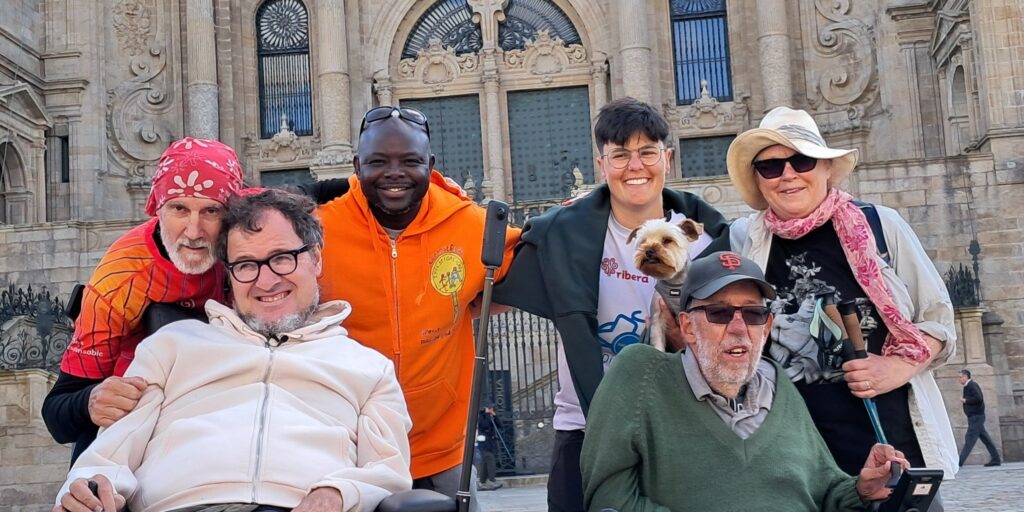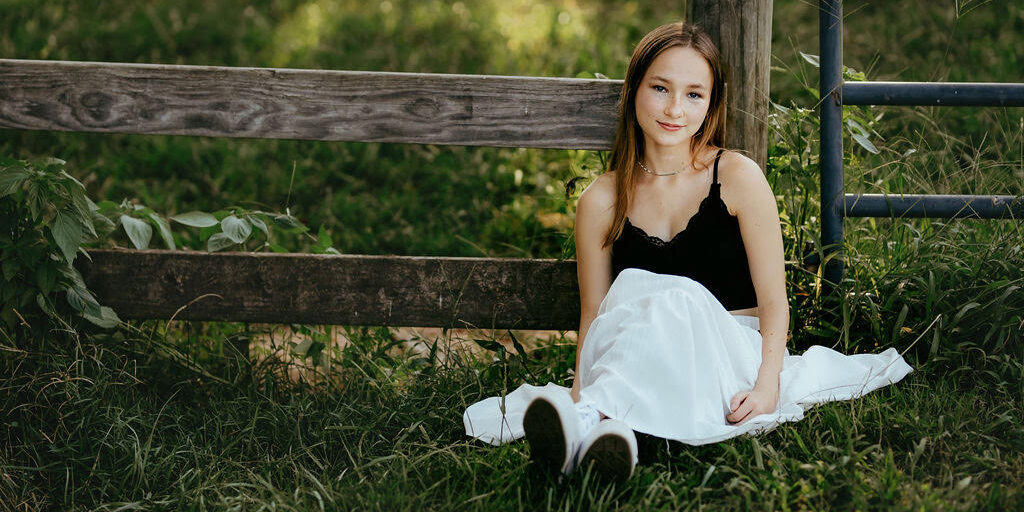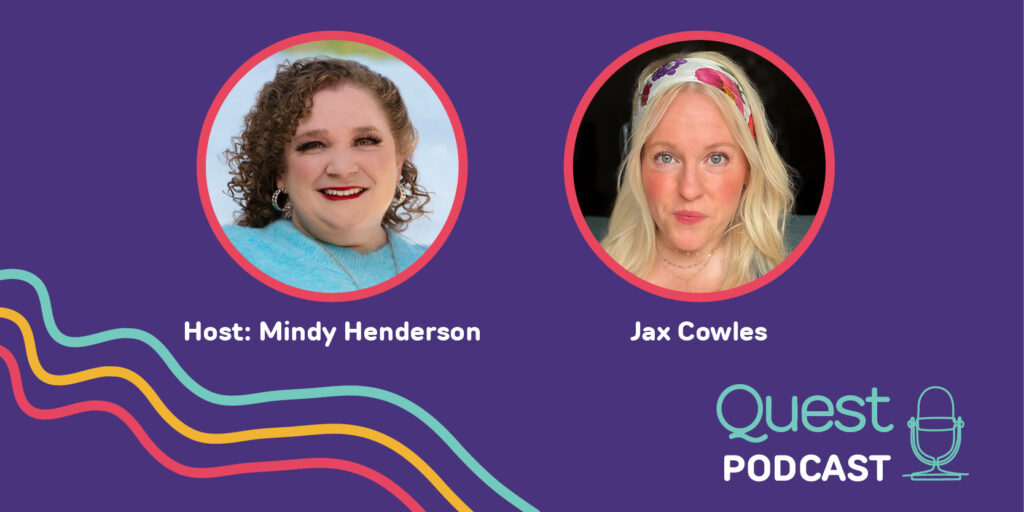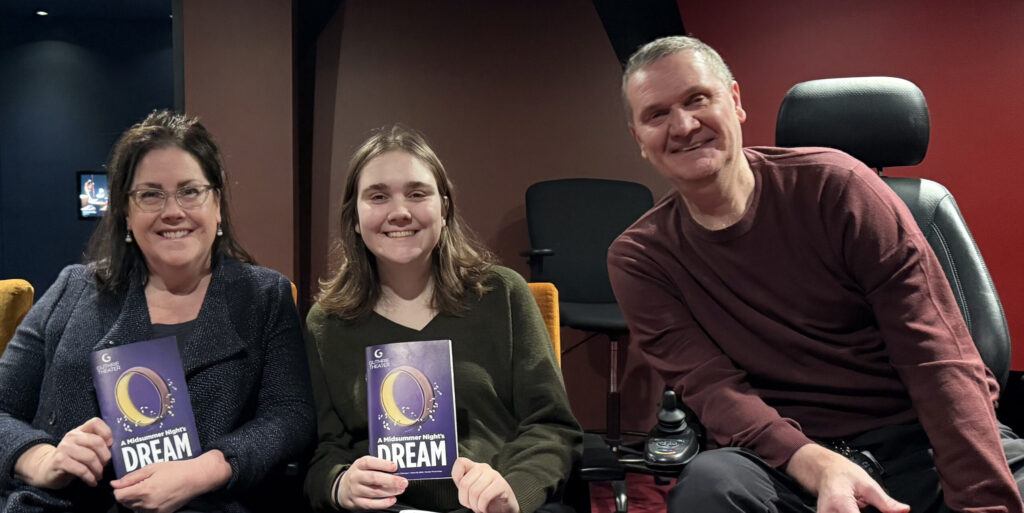
MDA Ambassador Guest Blog: Life Lessons on My Journey with Becker Muscular Dystrophy
By Jon Bruns | Thursday, September 25, 2025
5 Second Summary
MDA Ambassadors play an essential role in furthering MDA’s mission while representing and empowering the neuromuscular disease community. Quest Ambassador Guest Blog series provides a platform to share their personal stories, perspectives, and experience.
Jon Bruns is 56 years old. He is originally from South Dakota and now lives in Ham Lake, Minnesota. Jon was diagnosed with Beckers muscular dystrophy (BMD) in his early 20’s. He and his wife of over 22 years have one daughter, who is a college student. Jon is an accountant and finance professional and works for a medical device company. Jon enjoys watching and attending sporting events, listening to music, cooking, playing blackjack, and spending time with his family and canine companion, Iris. Jon has served as an MDA Ambassador for 2 years and is active in the MDA community in various volunteer activities, fundraising, and community events.
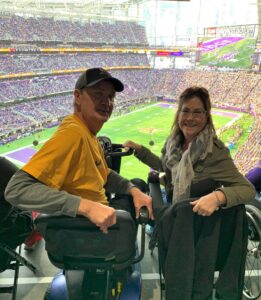
Jon Bruns and his wife at a game.
Living with a progressive neuromuscular disease brings a unique set of challenges and experiences that might make one reflect on the saying, “If I knew then what I know now.” This certainly applies to my journey with BMD. Looking back at my childhood and teenage years, I clearly had the classic symptoms of BMD. I did not know what was going on until my primary care doctor referred me to a neurologist in my early 20’s. It took a quick observation by that doctor and a muscle biopsy to confirm that I had Beckers muscular dystrophy. I had never heard of this before. Receiving this diagnosis was a challenging and emotional time for me. Instead of accepting the diagnosis and preparing for the future, I went into complete denial and didn’t tell anyone about my diagnosis for many years. In hindsight, that was not the best decision. But that denial is something that many of us diagnosed with a rare disease often go through. My thought process at the time was: if I don’t talk about it, I won’t have to deal with it. I would learn that only works for so long.
In fact, I would learn a lot of things over the next three decades. From learning to share my diagnosis to adapting and accepting help, here are a few of the life lessons that I have gained on my journey with BMD.
Letting people in lightens the load
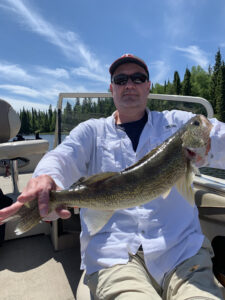
Jon caught a fish!
What I did not realize when I was in denial is that the people who love you will be there for you if you reach out. But you must reach out because those who love you may be afraid to bring it up. What really changed for me was when I started dating my wife, Lynn. As our relationship became serious, I needed to share with her what I was dealing with. Obviously, I feared what this would do to our relationship. But my fear was unfounded, she has been my greatest advocate and supporter since that first conversation we had about it. From that point on, she gave me the courage to tell my mom and siblings. Since that time, everyone I share my story with has been so supportive. The lesson to be learned is that accepting an initial diagnosis of a disability can be a challenging and emotional process – but know the people who love you will be there to support you. Just give them the opportunity.
Adapting sometimes means letting go
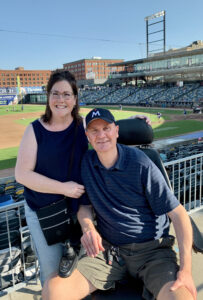
Jon and wife at another game.
The biggest challenge for me on my journey has been to accept the lifestyle changes that a progressive disease brings and try to find new ways to live my life to the fullest. Over time I have had to give up hobbies that I had been doing since I was a kid. Some I gave up and some I held onto as long as I could. I owned a fishing boat for many years, but finally had to sell my boat during the pandemic. I had been making annual fishing trips to Canada for many years, but it just became too physically demanding and unsafe. I loved woodworking, my dad taught me this skill when I was kid. But I stopped using table saws and other power tools when I felt it was no longer safe. I try my best not to regret what I am no longer able to do. And embrace the things I am still able to do. This life lesson goes hand-in-hand with the idea of focusing on the things I can control and accepting the things I cannot control.
The power of family and community
What has helped me the most in my journey is the support I get from my family and the community of people affected by a neuromuscular disease. I would not be the person I am today without the support I have received from my wife, daughter, and other family members. My wife is my number one advocate in making sure I am doing everything I can to make life with BMD as easy as possible.
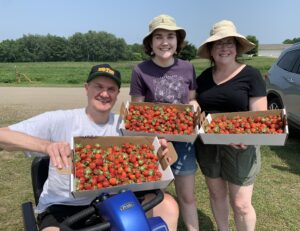
Jon and his family picking strawberries.
I know many people with neuromuscular diseases are also parents. Bringing up children in this world can be one of the most challenging things we will face. And being a parent with a disability can be even harder. Despite the physical things you may not be able to do as a parent, there is so much more that you give your children. I honestly believe children who are brought up in this situation are more empathetic and understanding of the struggles many of us deal with. I know that is true for our daughter Ava.
Connecting with the MDA community has also been so important for me. Being an MDA Ambassador connects me with people like me, that I can learn from and that I admire. I am actively involved in a local adult support group that is a safe space to share with others my experience dealing with the adversity that living with a neuromuscular disease can bring. I also try to accept any opportunity I get to share my story and advocate for the MDA, including speaking to the firefighters at the Fill The Boot bootcamp each year.
Advice for your journey
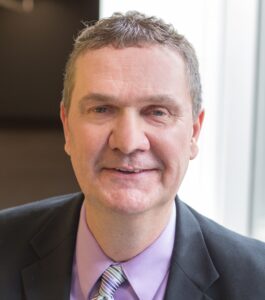
Jon Bruns, author
I have a lot of advice that I would give to that younger me who faced a life-altering medical diagnosis. And I want to share that with anyone else who is on a similar journey.
Seek support; there are so many helpful resources out there that can make life easier for you. Accept help; one trait many of us have is stubbornness but letting people help you makes your life easier and makes others feel good. Focus on what you can control. One thing that you can control is your attitude. I try my best to choose a positive attitude. Yes, I have days when I want to give up, but I remind myself of everything that I am grateful for instead. My life with BMD has been a challenging journey and it’s ok to have good days and bad days. Don’t beat yourself up over things you cannot control.
And finally, be kind to yourself.
Next Steps and Useful Resources
- For more information about the signs and symptoms of Becker muscular dystrophy (BMD), as well an overview of diagnosis and treatment concerns, an in-depth review can be found here.
- Listen to a Quest Podcast conversation with Jess Westman, 25-year-old actor, disability activist, writer/composer, comedian, and human person (in that order) also living with Becker Muscular Dystrophy.
- To learn more about MDA’s Mental Health Hub, visit here.
- MDA’s Resource Center provides support, guidance, and resources for patients and families. Contact the MDA Resource Center at 1-833-ASK-MDA1 or ResourceCenter@mdausa.org
- Stay up-to-date on Quest content! Subscribe to Quest Magazine and Newsletter.
TAGS: Ambassador Guest Blog, Ambassadors, Community, Mental Health, Relationships, Staying Active
TYPE: Blog Post
Disclaimer: No content on this site should ever be used as a substitute for direct medical advice from your doctor or other qualified clinician.


